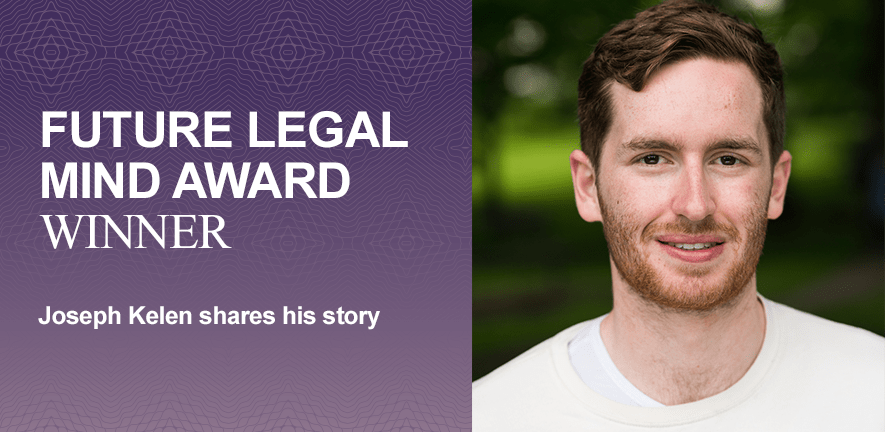University of Cambridge law student Joseph Kelen, winner of National Accident Helpline’s Future Legal Mind Award 2020, discusses his experience in the competition and future career plans
For the competition, I wrote an essay on reforming the law’s current approach to homelessness, in particular by repealing the Vagrancy Act. I’ve been volunteering with the charity Crisis at Christmas for seven years now and have met people whose lives have collapsed for one reason or another, which is a social and a health issue – not a criminal issue. When vagrancy laws are used, homeless people come out of custody with a criminal record, which makes it even more difficult for them to make a change in life.
In my essay and video I spoke about humanitarian aid internships I have completed. When I was 18 years old, I had a desire to pursue humanitarian aid work, so I got my languages up to scratch and went to work in Bangladesh and Sri Lanka. Whilst there, I began to realise that much of the deprivation I witnessed required structural change, and began to consider human rights law as a way to make that change happen.
I was a mature graduate law student on the 2-year BA, which I undertook on the basis it would be better than the GDL when applying for the Bar. Given the importance placed on grades by Chambers, I spent most of my time in the library or cafes, having already had my ‘fun’ university experience previously at Durham and Warwick.
Like many other students, Cambridge has been a very intellectually rewarding period of my life. Particular highlights were attending free events held at the Lauterpacht Centre for International Law, and hearing Philip Sands speak in person: opportunities which would have been rare to access elsewhere.
During my free time I became deeply involved in mooting, most recently winning the Atkin Chambers Inter-collegiate Moot alongside Moni Owoade, and being a semi-finalist in the Inns of Court Inter-Varsity Mooting Competition with Carola Binney. The amount of opportunities for law students at Cambridge University was truly unique in its breadth. In particular, I found mooting had a direct, beneficial influence on my law degree: the way I structured essays and argued points vastly improved the more mooting I did. It also helped me become better at time-management, and adapt my public-speaking style from the stage to the moot court.
Outside of university, I also acted as an Independent Custody Visitor, scrutinising the welfare of detainees in Cambridge Police Station, and advocating for their improved conditions. I found this particularly valuable, as it gave me a raw insight into how abstract principles of human rights learnt in the lecture-hall could be put in practice to make a tangible difference.
I also volunteered as a legal researcher in Iraq, supporting the rights of detainees in a rather different setting, as well as helping to set up a scheme for community paralegals in Syrian refugee camps, who otherwise lacked access to the Iraqi justice system.
More recently, I have undertaken a number of mini-pupillages at Blackstone, Monckton, Landmark Chambers, and One Essex Court. These helped me to apply my academic insights into real commercial advocacy.
Given my academic background in Economics and Human Rights, I hope to become a barrister in Public-Commercial law, advocating in situations where public-policy issues butt against financial obligations.

